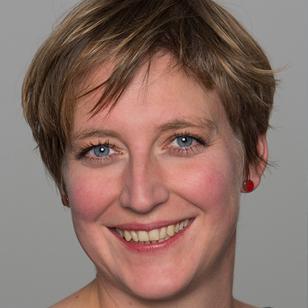How can we reinvent the UN system? Invest in its people
This weekend, all eyes are on New York as global leaders converge for the highly anticipated Summit of the Future and the annual General Assembly at the United Nations (UN) headquarters. The Summit is more than just another gathering; it’s a pivotal moment to breathe new life into the multilateral system, with the UN at its core. Against the backdrop of escalating global crises, the world is looking to the UN – now, more than ever, for leadership, innovation, and renewed purpose.
The stakes are high. Member States are set to agree on tangible steps to revamp the international financial system, address emerging security threats, harness digital technologies for positive change, and—crucially—elevate the voices of youth and future generations in global decision-making.
As global challenges grow more complex, the UN’s role has never been more critical. Yet, paradoxically, the space for the Organization to act is shrinking. In addition, budget cuts and political pressures are undermining its ability to respond effectively, even as demand for multilateral support is skyrocketing. It’s clear: if the UN is to meet today’s urgent needs, it must transform itself to be more agile, more innovative, and better equipped for the 21st century.
This transformation goes beyond the familiar calls for reforming the Security Council or reshaping the Peacebuilding Commission. It’s about reinventing the UN from within—investing in its most valuable asset: its people. Enter the vision of UN 2.0, championed by the Secretary-General in the lead-up to this Summit. UN 2.0 stands for building a more future-ready organization, one that better leverages cutting-edge skills and fosters a forward-thinking culture for greater impact.
Over the past few months, we’ve seen this vision begin to take root across the UN System. Agencies are sharing good practices, and dynamic communities are forming around the so-called Quintet of Change: behavioral science, innovation, data, foresight, and digitalization. These skills can become the building blocks of a new kind of UN, one that can more effectively anticipate and navigate the complexities of an increasingly unpredictable world.
But transforming the UN is not just about acquiring new skills; it’s about shifting mindsets and culture. UN personnel, regardless of their roles or duty stations, need to be equipped to better support member states and societies in more innovative ways. This means more than keeping up with technological advancements; it requires increased resilience, creativity, and a strong grounding in the UN’s core values like gender equality and human rights. It’s about building a workforce that can better thrive in ambiguity, adapt to crises, and drive positive change in every corner of the globe.
At the UN System Staff College (UNSSC), we’re proud to be at one of the forefronts of this movement. As a catalyst and convener, we are promoting dialogue and knowledge sharing on UN 2.0 through our Blue Line learning platform. We’ve just launched a new learning path dedicated to the Quintet of Change skills, offering free access to resources, tools, frameworks, and, crucially, use-cases from across the UN System on foresight, digital literacy, behavioural science, innovation, and data. Our goal? To empower every UN staff member to harness these tools and strategies to meet evolving global challenges - to learn the skills of tomorrow, today.
The world is counting on a revitalized UN to deliver solutions for a better tomorrow. We are ready to play our part in making that vision a reality.
Photo credit: UN Photo/Rick Bajornas
